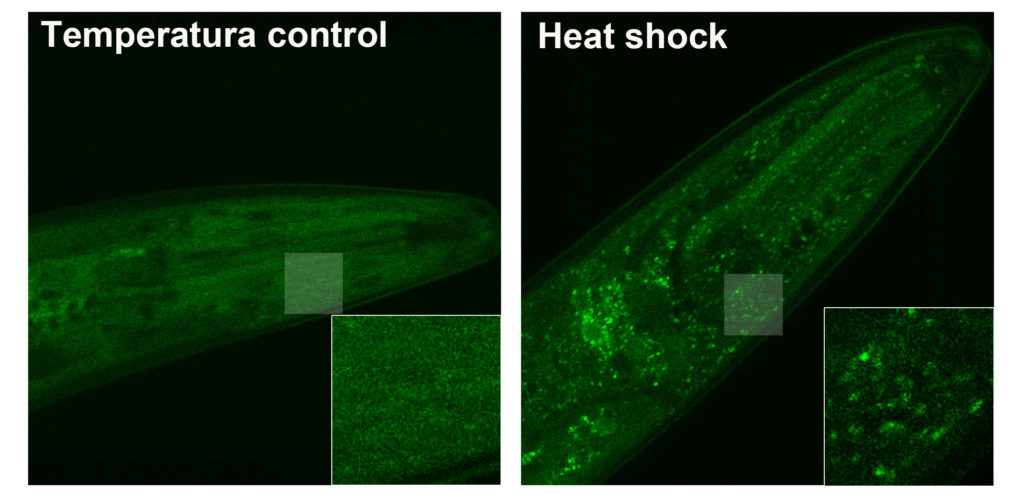Researchers at the Bellvitge Biomedical Research Institute (IDIBELL) in Barcelona have discovered that the LSM-1 protein protects Caernorhabditis elegans against heat stroke. These worms are used as animal model research. Only animals that have a larger amount of this protein survive a drastic temperature rise.
The group led by Julian Ceron in IDIBELL specializes in C. elegans, an one inch-worm which is used as animal model in biomedical research.
In the study published in the journal RNA, the researcher Eric Cornes noted that transgenic worms that had elevated levels of LSM-1 were more resistant to the heat-shock. This observation was corroborated by increasing levels of LSM-1 in different ways and the results were consistent in all cases. While a high temperature killed the rest of worms, those which had high levels of LSM-1 survived.
Protection against high temperatures and heat waves
“The association between these experiments and summer heat waves is inevitable because the LSM-1 protein is conserved from bacteria to humans,” explains Julian Ceron.
Every year thousands of deaths worldwide are attributable to heat waves. In Europe in 2003 they killed nearly 70,000 people by aspects related to high temperatures. And many diseases are worsened by heat. Moreover, in view of climate change models, the negative impact of heat on health is far from subsiding.
When the researchers analyzed the sequence of the LSM-1 protein, they discovered that it already existed in the earliest forms of life: archaea. LSM-1 also has the function of protecting the bacteria from environmental changes. Moreover, in human tumors it has been described that this protein is present at levels above normal. Therefore, it is hypothesized that high levels of this protein confers ability to survive in cells and organisms unfavorable environments.
“We have related to LSM-1 with a metabolic pathway that is present in all animals Julián Cerón says the researcher. “Therefore, we hope that this work will lay the foundation for new research to deepen the relationship of this protein metabolism, diet, and the ability to survive at high temperatures”
Reference
Cornes, E. Porta-de-la-Riva, M. Aristizabal-Corrales, D. Brokate-Llanos, AM. García-Rodríguez, FJ. Ertl, I. Diaz, M. Fontrodona, L. Reis, K. Johnsen, R. Baillie, D. Muñoz, MJ. Sarov, M. Dupuy, Mr. Ceron, J. Cytoplasmic LSM-1 protein Regulates stress responses Through the insulin / IGF-1 signaling pathway in C. elegans. Published in Advance July 6, 2015, doi: 10.1261 / rna.052324.115. RNA 2015. http://rnajournal.cshlp.org/content/early/2015/07/03/rna.052324.115?top=1

